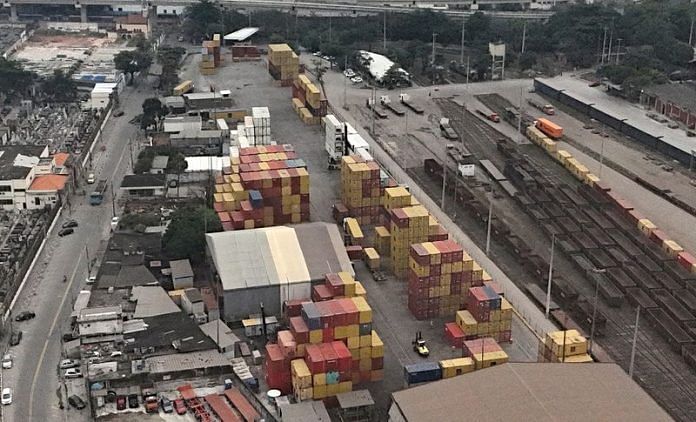WASHINGTON (Reuters) -U.S. President Donald Trump on Wednesday slapped a 50% tariff on most Brazilian goods to fight what he has called a “witch hunt” against former President Jair Bolsonaro, but softened the blow by excluding sectors such as aircraft, energy and orange juice.
That came as a relief for many in Brasilia, who since Trump announced the tariff had been urging protections for major exporters caught in the crossfire. Shares of planemaker Embraer and pulpmaker Suzano rose.
“We’re not facing the worst-case scenario,” Brazilian Treasury Secretary Rogerio Ceron told reporters. “It’s a more benign outcome than it could have been.”
In a factsheet about Trump’s executive order on Wednesday, the White House tied the tariffs to Brazil’s prosecution of Bolsonaro, who is standing trial on charges of plotting a coup to overturn his 2022 electoral loss.
The executive order came as the U.S. also announced sanctions on a Brazilian Supreme Court justice overseeing Bolsonaro’s trial, accusing the judge of authorizing arbitrary pre-trial detentions and suppressing freedom of expression.
Still, Trump’s executive order formalizing a 50% tariff excluded dozens of key Brazilian exports to the United States, including civil aircraft, pig iron, precious metals, wood pulp, energy and fertilizers.
Among the top concerns in the government of President Luiz Inacio Lula da Silva were aircraft produced by Embraer, which exports 45% of its commercial aircraft and 70% of its executive jets to the United States.
Analysts had also warned of a serious potential impact on Suzano, one the world’s largest wood pulp producers.
Embraer shares rose 11% in Sao Paulo and Suzano gained over 1% in afternoon trading.
Former Brazilian trade secretary Welber Barral warned it was too soon to celebrate, however. He estimated that the list of Brazilian products exported to the U.S. comprises approximately 3,000 items, and only a fraction of these received exclusions.
“There will be an impact,” he said of the tariffs.
Wednesday’s executive order did not include exemptions for beef or coffee, two key exports to the United States, he noted.
Brazilian meatpacking lobby Abiec, which represents beef producers including JBS and Marfrig, did not immediately comment on Wednesday’s executive order.
On Tuesday, the group said the new tariffs would make sales to the U.S. “inviable.”
Despite language exempting “energy and energy products” from the tariffs, energy companies operating in Brazil suspended oil shipments to the United States, citing uncertainty, industry group IBP told Reuters.
(Reporting by Gabriel Araujo and Ana Mano in Sao Paulo, Ismail Shakil in Ottawa, Kanishka Singh in Washington; Writing by Manuela Andreoni; Editing by Brad Haynes and Rosalba O’Brien)
Disclaimer: This report is auto generated from the Reuters news service. ThePrint holds no responsibility for its content.




